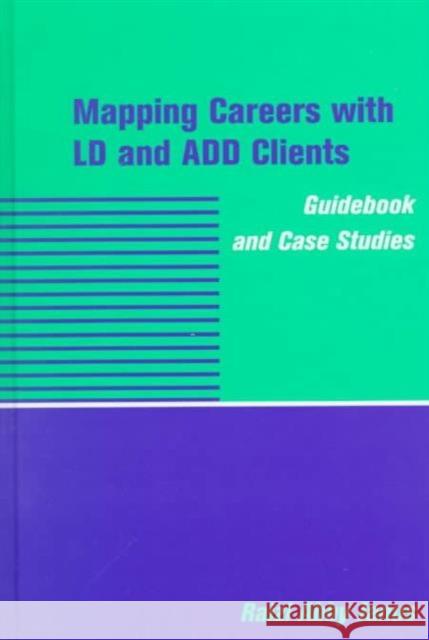Mapping Careers with LD and Add Clients: Guidebook and Case Studies » książka
Mapping Careers with LD and Add Clients: Guidebook and Case Studies
ISBN-13: 9780231109789 / Angielski / Twarda / 1999 / 384 str.
Fifteen percent or more of the population have learning disabilities (LD), attention deficit disorder (ADD), or both. These individuals, who are often perceived by career counselors and employers as frustrating or difficult, are uniquely vulnerable in a competitive job market. Because LD and ADD individuals have "invisible handicaps," their job performance and social behaviors can be interpreted incorrectly. As a consequence, problems arise that could be avoided. Mapping Careers with LD and ADD Clients is a user-friendly guidebook for career counselors and employers to help them deal productively with LD/ADD adults. For this reason, the book is useful as a supplementary text for graduate courses in career counseling.
Raizi Abby Janus synthesizes the two fields of LD/ADD diagnosis and career assessment into a comprehensive methodology. She provides the necessary background knowledge to enable social workers, psychiatrists, psychologists, guidance counselors, and human resources personnel to - Recognize when an employee or client has a learning disability. - Provide relevant guidance to these individuals. - Optimize their job performance and productivity. - Help clients attain a clarified sense of identity. - Know when to refer clients to other professionals for further evaluation. - Be able to suggest reasonable accommodations on the job in accordance with the Americans with Disabilities Act. For employers and career counselors, rich anecdotal insights give the feel and look of the LD and ADD syndromes in daily life and at work. For researchers in the field of adult LD and ADD, the case studies in Mapping Careers make a major contribution by providing - Thorough psychometric documentation of the cognitive, emotional, and personality profiles of adult LD and ADD individuals. - Commonly encountered profiles, as well as those of a more complex nature. Janus addresses the pitfalls of indiscriminately using normative tests of intellectual and personality functions, such as the Myers-Briggs Type Indicator, 16 PF, and MMPI-2. She emphasizes the ways in which the application of normative methodologies to the LD/ADD client can be useless, misleading, or counterproductive. She also provides a useful methodology for interpreting these tests tailored to LD/ADD needs. Janus has crystallized twenty years of experience in career counseling. In assessing a variety of clients, she has identified and worked with those whose LD/ADD is the source of their difficulties, as distinct from other causes.










